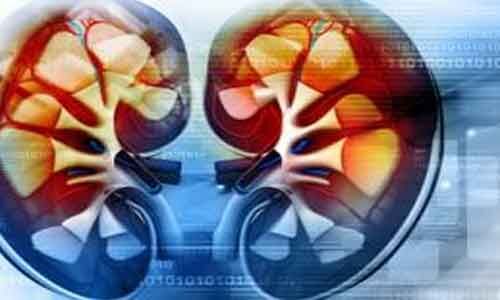- Home
- Medical news & Guidelines
- Anesthesiology
- Cardiology and CTVS
- Critical Care
- Dentistry
- Dermatology
- Diabetes and Endocrinology
- ENT
- Gastroenterology
- Medicine
- Nephrology
- Neurology
- Obstretics-Gynaecology
- Oncology
- Ophthalmology
- Orthopaedics
- Pediatrics-Neonatology
- Psychiatry
- Pulmonology
- Radiology
- Surgery
- Urology
- Laboratory Medicine
- Diet
- Nursing
- Paramedical
- Physiotherapy
- Health news
- Fact Check
- Bone Health Fact Check
- Brain Health Fact Check
- Cancer Related Fact Check
- Child Care Fact Check
- Dental and oral health fact check
- Diabetes and metabolic health fact check
- Diet and Nutrition Fact Check
- Eye and ENT Care Fact Check
- Fitness fact check
- Gut health fact check
- Heart health fact check
- Kidney health fact check
- Medical education fact check
- Men's health fact check
- Respiratory fact check
- Skin and hair care fact check
- Vaccine and Immunization fact check
- Women's health fact check
- AYUSH
- State News
- Andaman and Nicobar Islands
- Andhra Pradesh
- Arunachal Pradesh
- Assam
- Bihar
- Chandigarh
- Chattisgarh
- Dadra and Nagar Haveli
- Daman and Diu
- Delhi
- Goa
- Gujarat
- Haryana
- Himachal Pradesh
- Jammu & Kashmir
- Jharkhand
- Karnataka
- Kerala
- Ladakh
- Lakshadweep
- Madhya Pradesh
- Maharashtra
- Manipur
- Meghalaya
- Mizoram
- Nagaland
- Odisha
- Puducherry
- Punjab
- Rajasthan
- Sikkim
- Tamil Nadu
- Telangana
- Tripura
- Uttar Pradesh
- Uttrakhand
- West Bengal
- Medical Education
- Industry
Molidustat as good as Darbepoetin to correct anemia in CKD patients: Study

Japan: Molidustat (MO) is noninferior to darbepoetin alfa (DA) for the correction of hemoglobin (Hb) in nondialysis chronic kidney disease (CKD) patients with untreated anemia, according to a recent study in the Nephrology Dialysis Transplantation. Further, MO showed no new safety concerns.
The findings were also presented at the European Renal Association-European Dialysis and Transplant Association 2020 virtual congress.
Anemia is a common complication among CKD patients. A hypoxia-inducible factor prolyl-hydroxylase (HF-PH) inhibitor is being developed as a new treatment option of renal anemia. Molidustat is an oral HIF-PH inhibitor that stimulates the production of erythropoietin. It was well-tolerated in phase IIb clinical trials. The phase III program entitled MolIdustat once dailY improves renal Anemia By Inducing EPO (MIYABI) was conducted in Japan.
Hiroyasu Yamamoto, The Jikei University School of Medicine, Tokyo, Japan, and colleagues investigated the efficacy and safety of molidustat in non-dialysis patients with renal anemia who are not treated with erythropoiesis-stimulating agents in this MIYABI Non-Dialysis-Correction (ND-C) of Hb study -- randomized, darbepoetin-controlled, open-label conducted up to 52 weeks. Study drug doses were titrated regularly with the aim of correcting and maintaining the patients' Hb values between the target range (11.0-13.0 g/dL). 82 patients were treated with a starting dose of 25mg of MO and 79 patients were treated with a starting dose of 30μg/2weeks of DA.
The primary efficacy variables were the mean Hb values during the evaluation period (30-36 weeks) and its change from baseline to demonstrate the non-inferiority of MO to darbepoetin alfa (DA) using a non-inferiority margin of 1.0g/dL.
Safety variables included adverse events (AE). Prespecified primary analysis results up to 36 weeks are presented in this study.
Key findings of the study include:
- The mean of baseline Hb values were 9.84 g/dL and 10.00 g/dL in the MO and DA group, respectively.
- MO increased the mean Hb values (rate of rise from baseline in Hb values at the first dose change up to 8 weeks: mean: 0.086 g/dL/week ) and achieved the lower limit of target range at 12 weeks.
- MO maintained Hb values after 12 weeks, and for the mean Hb values during the evaluation period, the mean was 11.28 g/dL.
- As the primary efficacy variables (the changes from baseline of mean Hb values during the evaluation period), the means were 1.45 g/dL and 1.70 g/dL in the MO and DA group, respectively.
- The LS mean difference was -0.38, therefore the non-inferiority of MO to DA was established.
- The mean (SD) doses during the study period were 45.33 (28.88) mg/day of MO and 17.87 (12.49) μg/week of DA.
- The most common maximum dose of MO was 25 mg (26 patients, 31.7%) followed by 75 mg (16 patients, 19.5%) and 50mg (14 patients, 17.1%).
- AEs were experienced in 84.1% of patients in the MO group and in 91.1% of patients in the DA group up to 36 weeks.
- The most common AEs occurred ≥ 5% of patients in any group were nasopharyngitis (20.7% and 25.3%, respectively) and worsening of chronic kidney disease (13.4% and 6.3%, respectively).
"The non-inferiority of MO to DA was established in non-dialysis patients with untreated anemia. The MO showed no new safety concern but further longitudinal investigation will be needed," concluded the authors.
The study, "To investigate the efficacy and safety of molidustat in nondialysis patients with renal anemia who are not treated with erythropoiesis-stimulating agents: MIYABI ND-C," is published in the journal Nephrology Dialysis Transplantation.
Dr Kamal Kant Kohli-MBBS, DTCD- a chest specialist with more than 30 years of practice and a flair for writing clinical articles, Dr Kamal Kant Kohli joined Medical Dialogues as a Chief Editor of Medical News. Besides writing articles, as an editor, he proofreads and verifies all the medical content published on Medical Dialogues including those coming from journals, studies,medical conferences,guidelines etc. Email: drkohli@medicaldialogues.in. Contact no. 011-43720751


